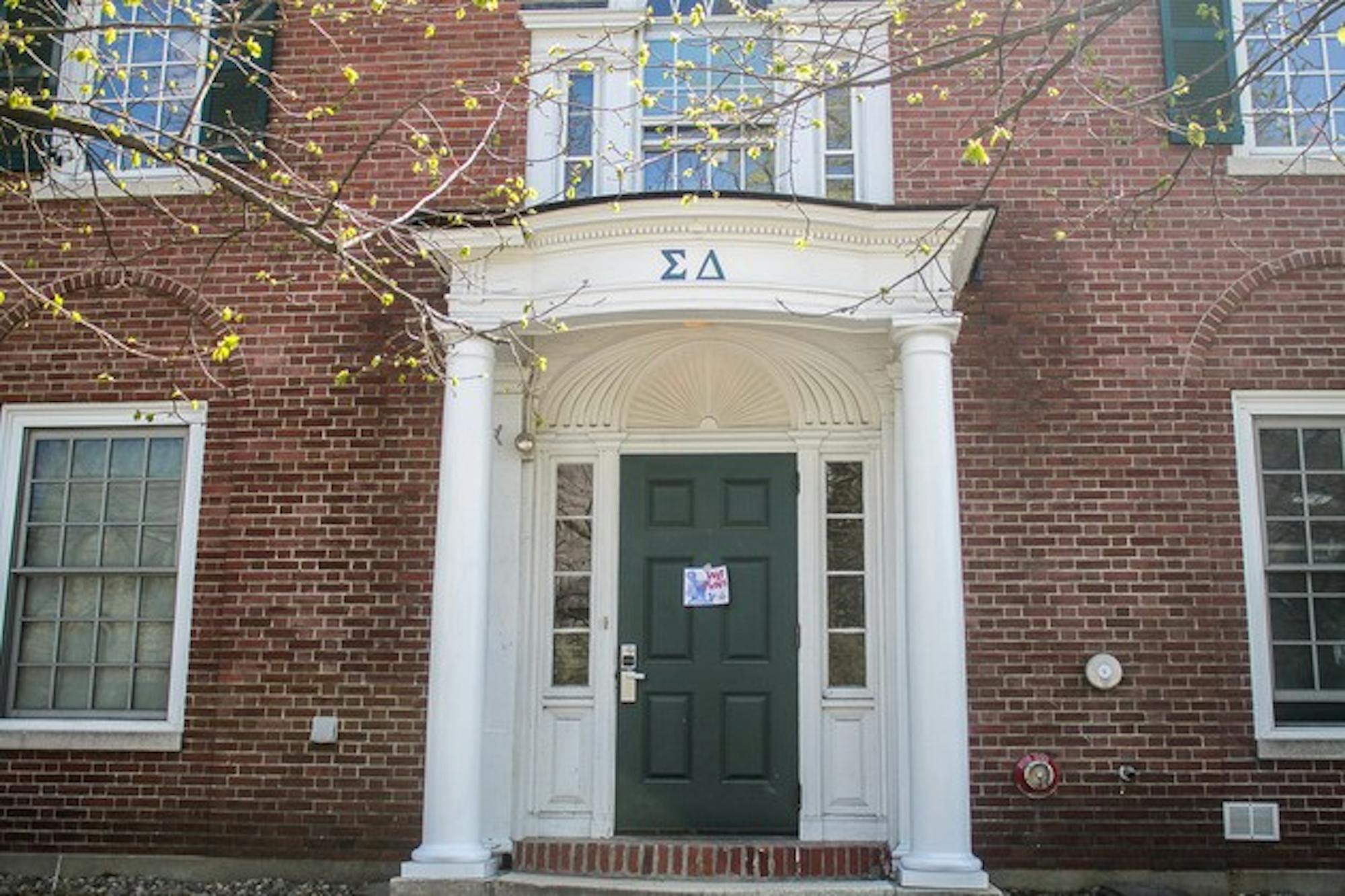In 1976, the Dartmouth Greek system incorporated four new national sororities in a span of five years. Two initiated a bottom-up dissociation with their letters 10 years later, and a third was replaced by an entirely new group of women. Together, these three remaining organizations, informally known as Sigma Delt, EKT and KDE, represent Dartmouth's only local sororities.
By 1988, the Dartmouth chapter of the national Sigma Kappa sorority had grown disenchanted with the organization's policies and philosophies, including "religion in rituals and an emphasis on men in National songs and overall attitudes," according to the Sigma Delt website. A formal split prompted the newly enfranchised sisterhood to adopt a Delta in place of the Kappa, symbolizing change.
"They really paved the way for female-dominated social spaces," Panhellenic Council president Eliana Piper '14 said of the first Sigma Delt pledge class. "National and local sororities today benefit from the groundwork they laid."
The sisters of Kappa Alpha Theta faced a similarly difficult decision in 1992. When they ultimately separated from their national affiliation, they strung their "colony's" letters, Epsilon Kappa, with Theta as a tribute to their national roots.
"The vote was not really whether to become a local, but whether to become a national, coming into compliance with the rules and expectations of the national we'd ignored for years," one sister argued.
As charters were revoked and national bank accounts were frozen, these fledgling organizations began to design the constitutions they felt would best embody their ideals. They established new rituals, restructured officer election procedures and reworked pledge education to provide a framework that allowed their sisterhoods to flourish.
Morgan Flatley '96 recalled the formation of KDE's inaugural pledge class, when the Panhellenic Council decided that the first 50 women to sign up via blitz would become the sisters of a new house set to replace Xi Kappa Chi, formerly known as Alpha Chi Omega.
"We had everything from women who never would have joined a Greek house through rush, to women whose mothers were devastated that they didn't join the national chapter they had been a part of," she wrote in a memoir. "There was no clear identity or personality to that first group of women, except that we were all extremely excited about the idea of creating our own space."
Indeed, local sororities are distinguished from their national counterparts because they are not beholden to the rules of a national body. Though this means less funding and a smaller network of sisters, it also endows them with the ability to serve alcohol and host parties that are open to campus. The privilege of having an influential social presence on campus is one that is otherwise reserved for Dartmouth's male or coed fraternities.
Twenty years ago, Flatley and her trail-blazing peers could have told us that the fight to give women their "own space" was long from over. Many of today's local sorority members were drawn to their respective houses because they wanted to help cultivate these female-dominated environments.
"The idea of a basement run by girls on campus seemed like a unique place that I really wanted to be a part of," Emily Uniman '15 said about her decision to join KDE.
Uniman said the College should make an effort to incorporate more local sororities to increase the number of women in the highly congested Greek system and minimize the disparity between basements managed by men and by women.
"As was clearly demonstrated by the Dimensions protests, there are spaces on campus where students don't feel safe or respected," Sigma Delt president Maya Schechter '14 said. "A greater number of local sororities would provide a wider variety of places to socialize and might mean that more students find a home on campus where they feel comfortable."
Last year, the Panhellenic Council and the administration tabled plans for a new sorority. The College has always had reservations about bringing new locals to campus, Piper said.
"The College's first priority is safety, so the hesitance toward bringing in more local sororities has to do with accountability," Piper said. "There is a belief that having a national organization as an umbrella keeps a sorority more accountable and makes it less of a risk to the school." Many have argued that more local sororities could help dismantle the gender hierarchies perpetuated by the current imbalance of the Greek system. Piper indicated that this dialogue has made the administration more open to the idea.
"If we were going to incorporate a local sorority, we would first look at our preexisting community to see if a national wants to go local," she said.
Piper emphasized that a new local sorority would be best equipped to improve social dynamics if it had a strong sisterhood and campus presence from the get-go.
Aside from vastly different institutional structures, the line between national and local sororities is often blurred on our campus. We have has a funny way of infusing its tradition, culture and spirit into each new organization to create an entity that is peculiarly Dartmouth.
"You'll often hear upperclassmen women in sororities say that they would never have been in a sorority at another school," Seanie Civale '14 said. "I think that speaks to the fact that sororities here, whether they be local or national, are different from the perceived national norm in a pretty special way."
Staff writer Iris Liu contributed reporting to this article.



